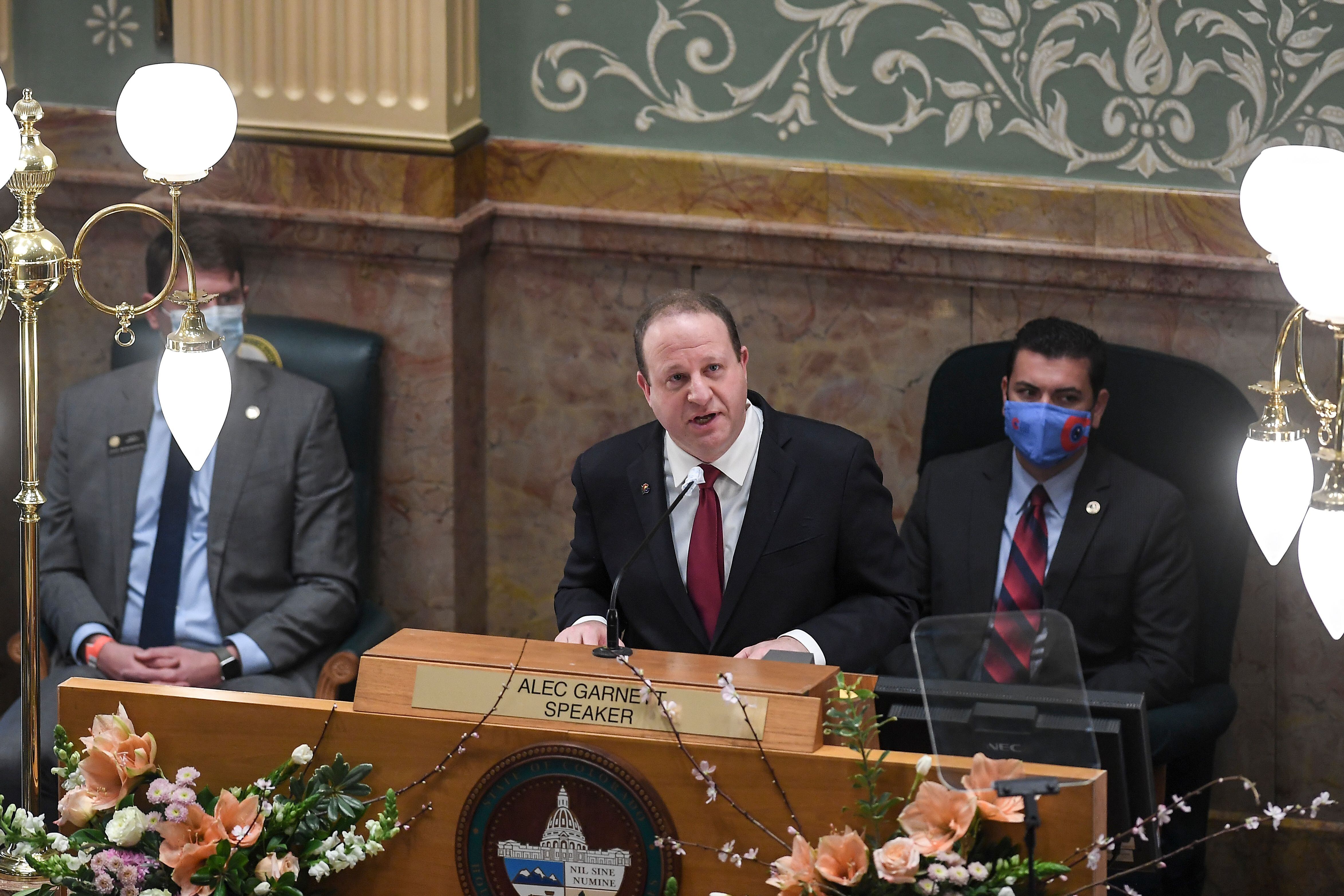Gov. Jared Polis would make significant investments in education in 2022-23, including increasing the funding schools receive per student to a “record amount” and putting funds aside for future years.
Polis’ $40 billion proposed budget, a 3.9% increase over this fiscal year’s budget, would put more money into schools, colleges and universities, and early childhood programs.
“Education is the best investment as a state that we make. It’s one of the reasons I ran for governor — to fix the systemic underfunding of our public schools and to pay teachers better,” he said. “It’s why I’m extremely proud to put forward a budget that invests a historic level of funding in our public schools.”
Polis’ budget is intended to help propel education budgets past the pandemic downturn.
In 2020, lawmakers cut large sums from education and other department after tax revenues plummeted due to coronavirus shutdowns. Last spring, they restored funding for education and other priorities as the state began to bounce back from the downturn.
Now Polis would like to invest even more in education and other areas.
Polis’ budget proposes to increase spending on basic education by 5.9% to $9,383 per student. By law, local taxpayers would pick up a portion of the costs. Total state spending on K-12 education would go up 3% to $6.6 billion.
Colorado’s constitution ties annual K-12 spending to the rate of population growth plus inflation. Despite that, each year lawmakers hold back money for other budget priorities in a move known as the budget stabilization factor. This year, that factor was $572 million, and since the Great Recession, it’s totaled nearly $10 billion.
Polis’ budget reduces the annual withholding to $422 million, a $150 million “buy down” and the lowest it’s been in the past 13 years.
Polis also wants to infuse $300 million in one-time money into the state education fund to maintain the level of budget stabilization factor level for several years. This prepayment would allow the state to prepare for economic uncertainty as it emerges from the coronavirus economic downturn.
Polis’ budget presentation argues that the one-time money would be better used in preparing for the future rather than increasing funding for programs this year.
Among other investments:
Higher education
- Total higher education department funding would increase by 1% to $5.18 billion. Polis’ budget calls for an increase of 4.6% in college and university operational support. Polis also wants $9.8 million more to increase student financial aid and help keep tuition flat. Polis also would direct $139.8 million to help schools with maintenance and building upgrades.
- The governor also wants to spend $7 million to help Coloradans enroll and succeed in higher education and job training. The money will underwrite training in in-demand job fields at the state’s community and technical colleges.
Early childhood education
- Polis proposes $13 million to help prepare to launch the state’s universal preschool program in 2023. The program will provide at least 10 hours per week of free preschool for all 4-year-olds.
- The governor would direct $30 million to create more child care facilities across the state by renovating existing state buildings for child care centers. The state will then partner with private operators to manage the facilities and increase child care capacity..
By law the governor must release his proposed budget for the next fiscal year on the first Monday in November.
The budget will help guide legislative conversations early next year when the six-member Joint Budget Committee crafts its own budget priorities.
Joint Budget Committee members applauded the governor’s budget. The committee, rather than the governor, writes the budget that the legislature votes on in the spring.
Committee member Rep. Leslie Herod, a Denver Democrat, in a statement praised proposed investments toward “an equitable recovery for Colorado.”
And committee Chairperson Rep. Julie McCluskie, a Dillon Democrat, said in a statement, “I appreciate the governor’s dedication to saving money for future buying down of the budget stabilization factor.”
Education and children’s advocacy groups also welcomed the proposal, and expressed hope lawmakers would invest more in the state’s teachers and students.
Colorado Education Association President Amie Baca-Oehlert issued a statement praising Polis’ proposal but worrying about what happens after one-time money runs out. She said the union wants “to stress to all Coloradans how important it is to get serious about providing long-term, sustainable funding for the public schools we all value.”
And the Colorado Children’s Campaign in a statement said the organization is encouraged but still calls for additional investments in the well-being of children, including health insurance, suicide prevention programs, school health counselors, and protection from eviction.






